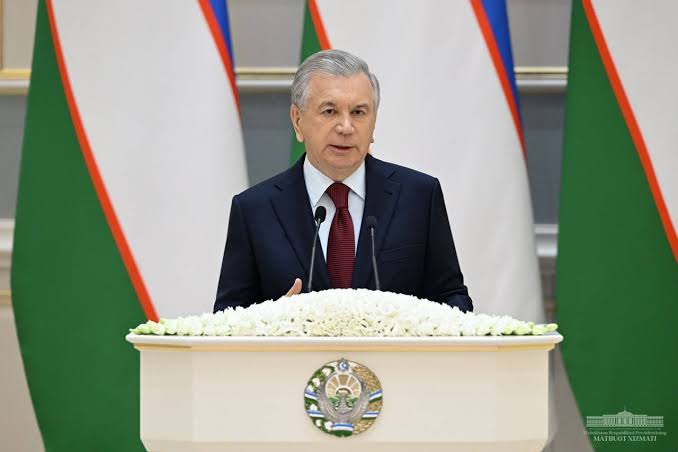
Khalilillo Turakhujaev writes 
Chairman of the Committee for the Development of Competition and Protection of Consumer Rights of the Republic of Uzbekistan
A number of crucial institutional reforms have been introduced in last five years to further modernize and enhance Uzbekistan’s economic and competition policies.
After a comparative study of international best practices, Uzbekistan has implemented a “Yellow Pages Rule” to decrease the extent of the state’s presence in the economy. Under the Rule, it is prohibited to establish a state-owned enterprise (SOE) if at least 5 private-sector entities are already established and operating within the relevant industry.
Uzbekistan reached this benchmark after a robust monitoring of its markets found that the presence of 5 entities signaled sufficient non-concentration.
The competition authority has been made directly accountable to the President and Senate to ensure independent decision making and avoid potential conflicts of interest.
State enterprises and public bodies must now comply with competition compliance tools to ensure an early prevention of competition law violations.
These tools include a set of good governance principles (e.g., ethics codes, corporate governance rules, oversight mechanisms), whose adoption is mandatory for state-owned entities (SOEs) and public authorities and voluntary for all other private entities.
Each company required to implement them must designate an internal officer to annually report to the Uzbekistan government, in order to increase transparency and accountability. Coupled with increased fines for non-compliance, these tools have proven to be an effective and robust preventative mechanism to stop anti-competitive behavior before it happens.
At the same time, SOEs may no longer participate in public procurement procedures, to eliminate conflicts of interest in public procurement and enhance transparency. Beneficiary disclosure obligations have also been set.
Regulatory Impact Assessments (RIA) and Competition Impact Assessments have been made mandatory for all draft legal acts before their establishment, in order to significantly reduce the regulatory burden on businesses.
State Aid and Competition
Uzbekistan has committed to revising and cancelling state aid provisions that have the potential to distort competition, in order to ensure a level playing field for companies. For instance, Uzbekistan is gradually eliminating individual privileges and tax benefits, preferences, and exclusive rights. Already, Uzbekistan has eliminated tax and customs benefits across 24 sectors, individual benefits across 4 sectors, and exclusive rights across 13 sectors (e.g., supply of liquefied gas to the general population and social facilities, medical examination of drivers and driver candidates, services for compulsory state insurance of tax officials, etc.).
Besides that, 130 types of licenses and permits that businesses may have had to apply for have been canceled. Additionally, in the place of 33 types of licenses and permits, a notification procedure has been introduced.
The President of the Republic of Uzbekistan has approved the Competition Development Strategy for 2020-2024. A key objective of the Strategy is to foster economic development and innovation, to increase the inflow of investments, to create jobs, and to increase the welfare of consumers by ensuring a “level playing field” for all market players.
A new Law on Competition was adopted in July 2023 and entered into force in October 2023, which implements new policy tools to prevent anticompetitive behavior and actions, including the abuse of dominant positions and cartel agreements and the effective control over state aid and state presence in the economy.
In addition to the introduction of more robust penalties to dissuade anticompetitive behavior, this law leverages many of the “smart” regulatory principles mentioned in the preceding paragraph, such as provisions that ease the regulatory burden on small- and medium-sized enterprises (SMEs). The Law also sets out a framework for the regulation of digital markets, the first of its kind in the region.
Uzbekistan’s Commitments
Uzbekistan has committed to further facilitating fair market competition and creating an enabling environment for the private sector, in order to ensure “a level playing field” and reduce the extent of the state’s presence in the economy.
To that end, the country has committed to abolishing 17 types of state monopolies by 2030 in a number of sectors, including energy, oil and gas, water management, road construction, railways, and airport services. The supply of these services will be transferred to the private sector, and in doing so, the number of SOEs will be reduced six-fold.
In addition, Uzbekistan has commenced its transformation of the public administration of its infrastructure sectors. By 2025, independent economic regulators across a number of sectors, including energy, railways, civil aviation and airport services, telecoms, road construction and water management will be established. The first regulator, in the energy sector, has already been established this year.
It is also necessary to align the activities of state trading enterprises (STEs) with WTO rules. As part of its ongoing work to ensure the WTO compliance of its STE activities, a high-level Council will comprehensively review the exclusive rights granted to STEs and develop measures to align the operations of STEs with the WTO rules.
It is worth noting that since 2019, 13 types of previously regulated prices have been liberalized. Among others, prices for socially significant goods such as wheat, bread, cotton and cotton oil, fertilizers, ethylene, fuel, and have been liberalized.
Starting October 1, 2023, Uzbekistan is gradually eliminating the subsidization of a number of regulated prices, including natural gas and electricity production and other services.
Abolition of Exclusive Rights, Equal Conditions, and WTO Accession
In line with Uzbekistan’s accession to the World Trade Organization (WTO), significant measures have been introduced to abolish exclusive rights previously granted to certain state-owned enterprises (SOEs) and to establish equal competition conditions in key sectors of the economy. These reforms aim to create a level playing field for private and state-owned companies and align national legislation with the WTO’s core principles of fair competition and market openness.
As per Decree of the President of the Republic of Uzbekistan enacted in June, 2024 following measures ensuring level playing field and free trade to be implemented.
Effective from January 1, 2025, Uzbekistan will abolish several exclusive rights held by prominent SOEs. These include the following exclusive rights:
– “Uzmetkombinat” JSC to procure scrap and waste of ferrous metals within the Republic.
– “Uzvtorcvetmet” JSC to procure and export scrap and waste of non-ferrous metals.
– “Uztrade” JSC to export flour and wheat without requiring a bank guarantee or insurance policy.
– “Uzkhimyoimpeks” LLC to act as the sole exporter of chemical products produced by entities under “Uzkimyosanoat” JSC.
Effective from January 1, 2026, restrictions on the export of cathode copper and copper wire rods will be eliminated.
Effective from July 1, 2026, the exclusive rights of “UzGasTrade” JSC to centrally procure and export natural gas, as well as “Uzenergotsotish” JSC to handle electricity exports and imports will be eliminated.
These steps are designed to reduce market distortions, encourage private sector participation, and promote competitive neutrality in the supply of vital commodities and services. By eliminating monopolistic privileges and introducing regulatory frameworks based on market-driven competition, Uzbekistan is taking decisive steps to ensure compliance with WTO rules.
This approach will support the integration of Uzbekistan’s economy into global trade networks, fostering increased foreign investment and enhancing the competitiveness of domestic industries.
Furthermore, to facilitate these reforms, licensing procedures for the collection, processing, and sale of metal scrap, as well as the wholesale and retail trade of natural gas and electricity, will be implemented starting January 2025. These measures, combined with the gradual elimination of state monopolies in key infrastructure sectors, will guarantee the establishment of transparent and equitable market conditions, aligned with international trade standards.
Results to the Date
Competition has markedly improved across 17 previously highly concentrated industries, and control by state control monopolies has been eliminated. SOEs’ domination has been ended in the cotton, wheat and cement production industries. Uzbekistan has completed the unbundling in the energy, civil aviation and airport services sectors and it has commenced its unbundling in the railways sector.
An example of a successful reform is the increase in competition in Uzbekistan’s civil aviation sector since 2019, achieved through the implementation of an “open skies” regime for nine major destinations. Uzbekistan has also almost removed the monopolistic position of its SOE, Uzbekistan Airways, in international flights. Overall, the number of state-owned enterprises has decreased by 40% since 2019.
It is worth noting that over the past five years, the share of state participation in the economy has dropped to 37% from over 55%, state assistance has been reduced to 12% from more than 22%, and the number of small and medium-sized enterprises has increased by 25%.

 to all..
to all.. 


